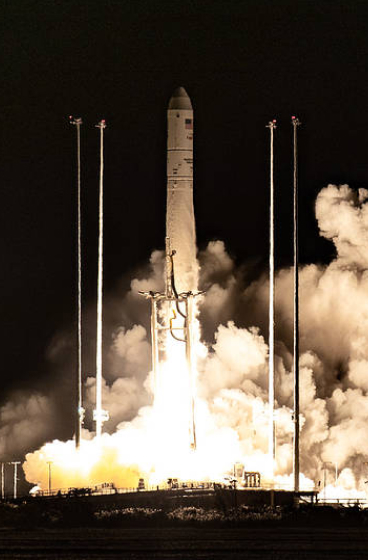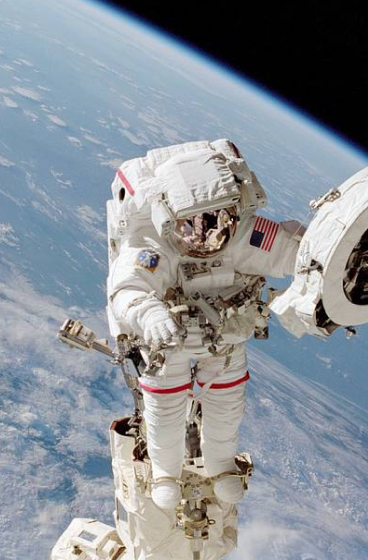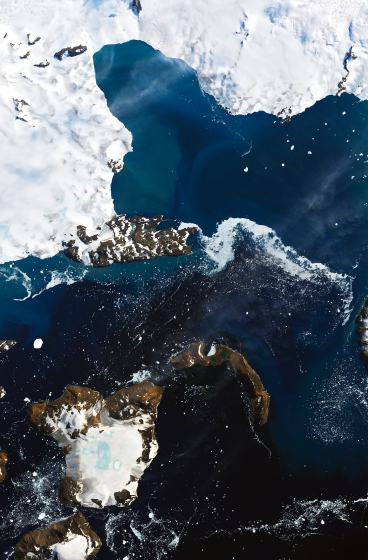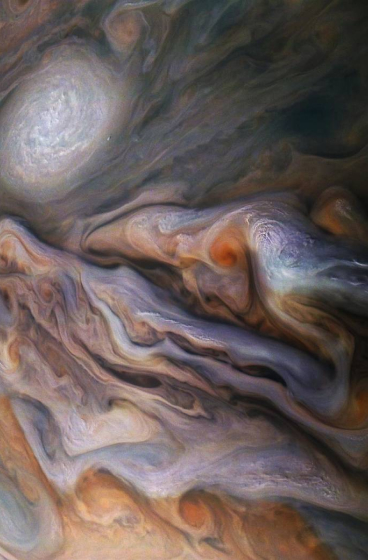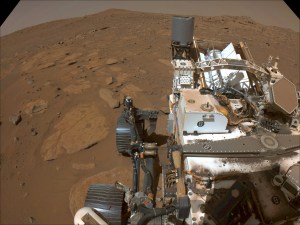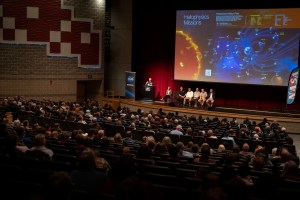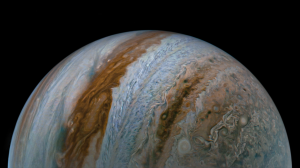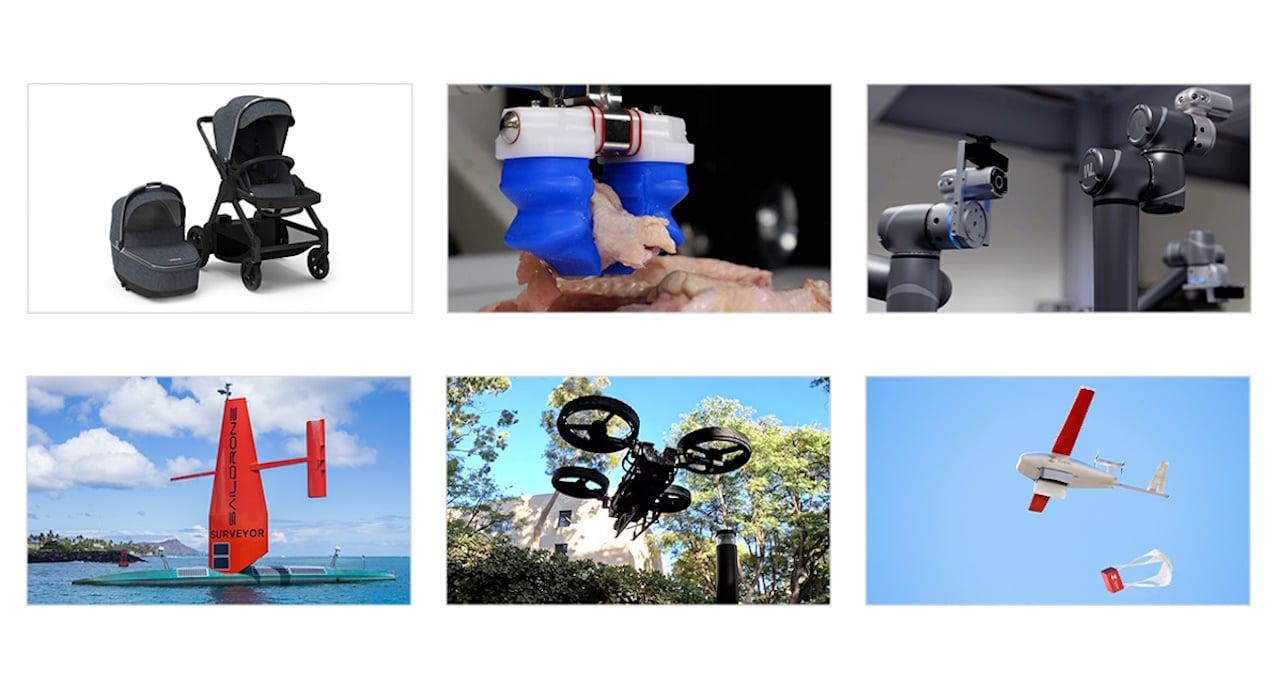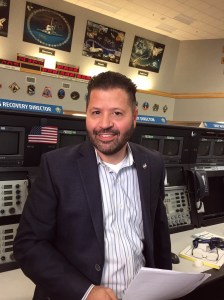Don't miss this unique opportunity offered by NASA. Add your name into deep space beyond Mars, all the way to Jupiter and its moon Europa
Six weeks remain for you to add your name to a microchip that will ride aboard the spacecraft as it explores Jupiter’s moon Europa. It’s not every day that members of the public have the chance to send their names into deep space beyond Mars, all the way to Jupiter and its moon Europa. Read more...
3 min read
Time Is Running Out to Add Your Name to NASA’s Europa Clipper
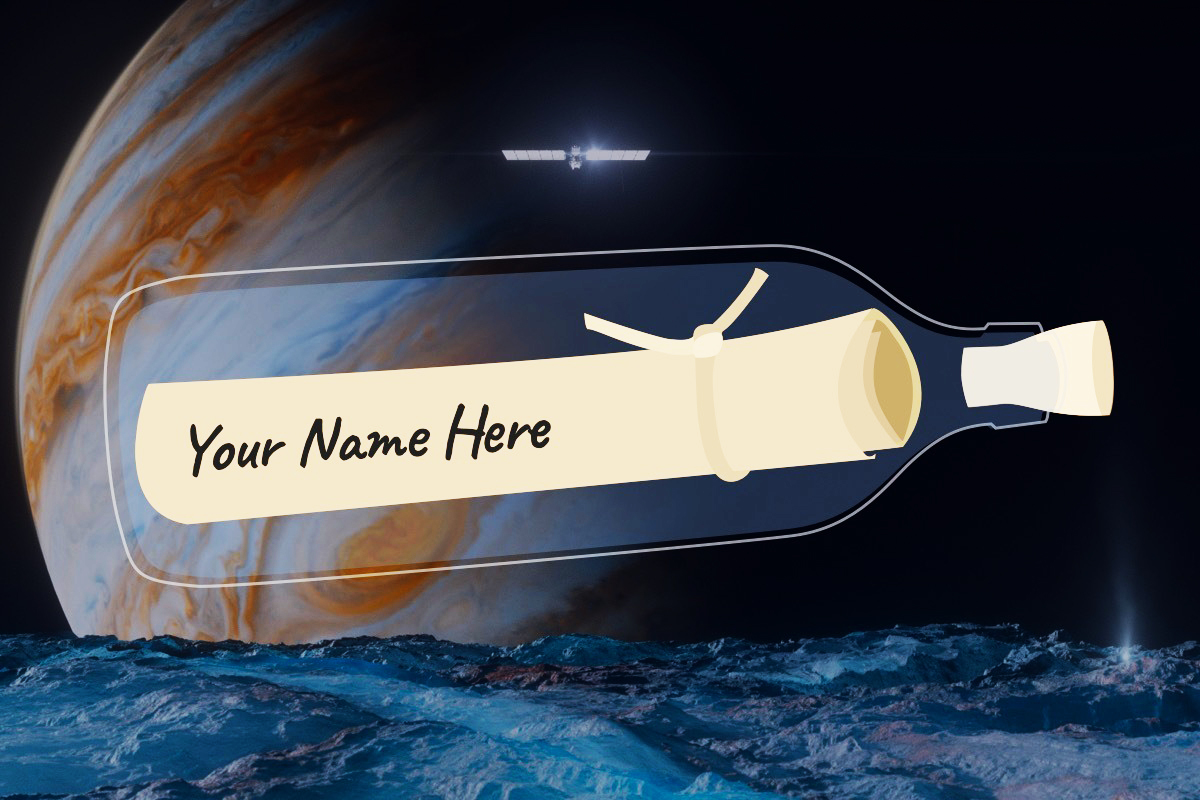
Six weeks remain for you to add your name to a microchip that will ride aboard the spacecraft as it explores Jupiter’s moon Europa.
It’s not every day that members of the public have the chance to send their names into deep space beyond Mars, all the way to Jupiter and its moon Europa. But with NASA’s Europa Clipper, you have that opportunity: Names will ride aboard the spacecraft as it journeys 1.8 billion miles (2.6 billion kilometers) to this icy moon, where an ocean hides beneath a frozen outer shell. The deadline to join the mission’s “Message in a Bottle” campaign is only six weeks away. The campaign closes at 11:59 p.m. EST, Dec. 31, 2023.
So far, about 700,000 names have been submitted. Once all the names have been gathered, technicians in the Microdevices Laboratory at NASA’s Jet Propulsion Laboratory in Southern California will use an electron beam to stencil them onto a dime-size silicon microchip. Each line of text is smaller than 1/1000th the width of a human hair (75 nanometers).
The chip will be attached to a metal plate engraved with the original poem “In Praise of Mystery,” written by U.S. Poet Laureate Ada Limón to celebrate the mission. Riding on the exterior of the spacecraft, the poem and names will be like a message in a bottle as they make about 50 close flybys of the ocean world.
The mission will log a half-billion miles (800 million kilometers) during these orbits as the spacecraft’s payload of science instruments gathers data on Europa’s subsurface ocean, icy crust, and atmosphere to determine if the moon could support life.
Once assembly of Europa Clipper has been completed at JPL, the orbiter will be shipped to NASA’s Kennedy Space Center in Florida in preparation for its October 2024 launch.
“Message in a Bottle” draws from NASA’s long tradition of shipping inspirational messages on spacecraft that have explored our solar system and beyond. The program aims to spark the imaginations of people around the world as the Voyager spacecraft did in 1977 by sending a time capsule of sounds and images reflecting the diversity of life on Earth.
To sign, read the poem, and hear Limón recite it in an animated video, go to:
https://go.nasa.gov/MessageInABottle
The site also enables participants to create and download a customizable souvenir – an illustration of your name on a message in a bottle against a rendering of Europa and Jupiter – to commemorate the experience. Participants are encouraged to share their enthusiasm on social media using the hashtag #SendYourName.
More About the Mission
Europa Clipper’s main science goal is to determine whether there are places below Jupiter’s icy moon, Europa, that could support life. The mission’s three main science objectives are to determine the thickness of the moon’s icy shell and its surface interactions with the ocean below, to investigate its composition, and to characterize its geology. The mission’s detailed exploration of Europa will help scientists better understand the astrobiological potential for habitable worlds beyond our planet.
Find more information about Europa here:
News Media Contacts
Gretchen McCartney
Jet Propulsion Laboratory, Pasadena, Calif.
818-393-6215
gretchen.p.mccartney@jpl.nasa.gov
Karen Fox / Alana Johnson
NASA Headquarters, Washington
301-286-6284 / 202-358-1501
karen.c.fox@nasa.gov / alana.r.johnson@nasa.gov
2023-166
ShareDetails
Related Terms
Discover Related Topics
